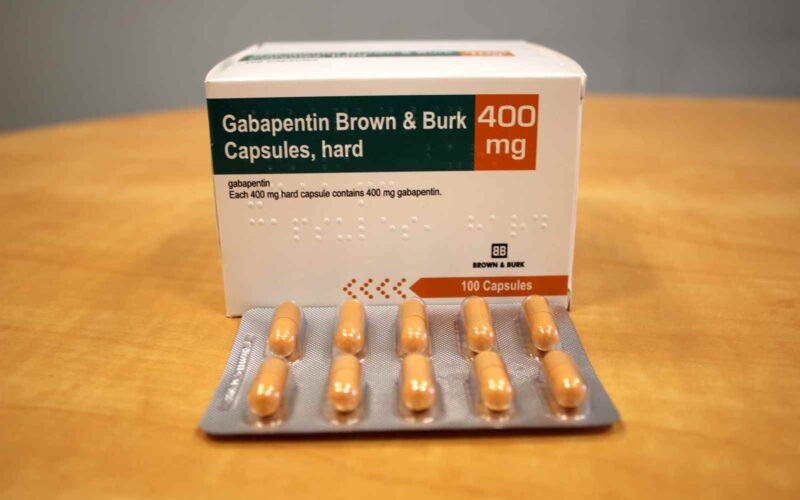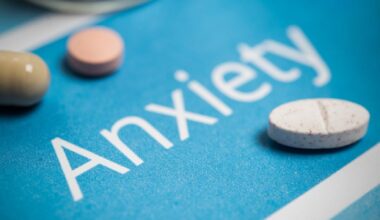Gabapentin, also known by its brand name Neurontin, is a commonly prescribed medication for the management of various conditions such as epilepsy, neuropathic pain, and restless leg syndrome. While it has proven to be effective in alleviating these ailments, some users have raised concerns about potential side effects, including weight gain. In this article, we will delve into the scientific evidence and studies to explore the connection between Gabapentin and weight gain. So, if you or someone you know is taking Gabapentin, read on to better understand its impact on body weight.
Understanding Gabapentin
Anticonvulsant medication gabapentin was initially created to treat epilepsy. Over time, it has gained popularity as an off-label medication to manage various chronic pain conditions. The exact mechanism of action of Gabapentin in alleviating seizures and nerve pain is not entirely understood. However, it is believed to work by modulating brain signals and reducing excessive neuronal firing.
Gabapentin is found in various forms, which include capsules, tablets, and oral solutions. The dosage might differ greatly from person to person depending on the illness being treated.
Mechanism of Weight Gain
To comprehend whether Gabapentin contributes to weight gain, we need to understand the underlying mechanisms. Several factors come into play:
A. Increased Appetite: Some users report an increase in appetite while on Gabapentin, leading to overeating and subsequent weight gain. This change in appetite can be especially problematic for individuals who struggle with portion control or have a history of overeating.
B. Slowed Metabolism: Some studies suggest that Gabapentin may alter metabolic rates, leading to decreased energy expenditure. The body may burn less calories as a result of a sluggish metabolism, which could make it simpler to acquire weight.
C. Fluid Retention: Fluid retention is another potential side effect of the drug, which can cause temporary weight gain. While this may not directly lead to an increase in body fat, it can be concerning for individuals who closely monitor their weight.
Scientific Studies (Gabapentin)
A. Clinical Trials: The link between Gabapentin and weight gain is not entirely conclusive. To evaluate this relationship, several clinical investigations have been carried out, however, the outcomes have been conflicting. For example, a study published in the journal “Epilepsy Research” in 2009 found that weight gain occurred in about 3% of participants taking Gabapentin for epilepsy. Conversely, a review published in “Pharmacoepidemiology and Drug Safety” in 2014 found no significant association between Gabapentin use and weight gain.
B. Animal Studies: Animal studies have provided some insights into this matter. According to a mouse research, gabapentin may cause weight gain by promoting fat storage and changing specific metabolic pathways. However, translating these findings directly to human subjects is not always straightforward, as animal studies do not always mirror human responses accurately.
Factors Influencing Weight Gain
It is important to understand that weight gain is a complicated problem, and that blaming Gabapentin alone for it might be incorrect. Various factors may contribute to changes in body weight, including:
A. Individual Variations: People respond differently to medications, and genetics play a crucial role in determining how our bodies react to Gabapentin. Some people are more likely to gain weight than others.
B. Dosage: The dosage of Gabapentin can vary significantly from one person to another, and higher doses may increase the likelihood of weight gain. Healthcare providers often start with a low dose and adjust it based on the patient’s response and the severity of the condition being treated.
C. Lifestyle: Dietary habits, physical activity, and lifestyle choices can influence weight gain independently of medication use. Changes in body weight can be attributed to various factors, including stress, a poor diet, and a sedentary lifestyle.
Minimizing the Risk
Here are some ideas to consider if you’re worried about gaining weight while taking gabapentin:
A. Monitor Eating Habits: Pay attention to your food intake and avoid overeating. Keeping a food journal can help identify any patterns of excessive eating.
B. Stay Active: Engage in regular physical activity to help maintain a healthy weight and offset any potential metabolic changes. Moderate exercise, like walking or cycling, can be beneficial.
C. Communicate with Your Doctor: If you notice weight gain while taking Gabapentin, don’t hesitate to discuss it with your healthcare provider. They can help assess the situation, adjust the dosage if necessary, or explore alternative medications with potentially fewer side effects.
D. Consider a Balanced Diet: Concentrate on eating a diet that is well-balanced and contains lots of fruits, vegetables, whole grains, and lean proteins. Processed foods and sugary snacks should be consumed in moderation as they can cause weight gain.
Conclusion
Within the medical profession, there is still disagreement over the relationship between gabapentin use and weight gain. While some studies have suggested a possible association, the evidence is not conclusive, and the impact appears to vary among individuals. If you are taking Gabapentin and are concerned about weight gain, the best course of action is to stay informed, monitor your body’s responses, and maintain an open line of communication with your healthcare provider. Always keep in mind that factors such as lifestyle decisions, individual variances, and other factors have a big impact on body weight.






